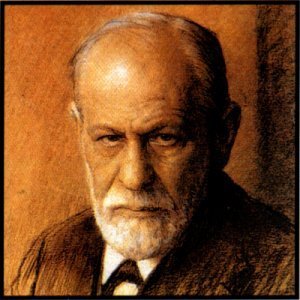
I was just reading an article about Neanderthals burying their dead, a practice which will further humanize them and cause us to see them not as higher apes but close cousins.
The idea that something so like us lived in our own era and became extinct, like Barbary Lions and Arctic camels, should be troubling for us, because it points not just to survival as an iron law of nature, but to the fact that like any other animal species we are subject to the vicissitudes of cultural and environmental change. In the death of Neanderthal we confront the general mortality of our own race. And though we shall never know, we may also confront the murderous superiority of human intelligence over theirs. Homo sapiens sapiens might have warred them to extinction, or they may simply have succumbed to disease or demographic decline.
We are more comfortable exploring the outreaches of space and the depth of the oceans for possible and unusual life forms than we are with probing the depths of the self because such activity distracts us from our own puny and limited existence.
There is nothing new about saying this; Freud would say it is just a spin on his theory of “substitutionary satisfaction,” except that instead of locating satisfaction in the arts and merchandisable skills that define civilization, as he tended to do, it locates it specifically in the objects we choose for scientific investigation: the outer world—the world external to the self. The inner world, now being dramatically explored by studies in cognition and neuroscience is more putative, perhaps even more real for certain people than for others. We have to acknowledge that the inner life of a stockbroker and the inner life of a classical musician or philosopher are different not just as a matter of preference or taste but as matter of fundamental interpretation and meaning. The world in which we become the object of our own thought is fraught with difficulty, not least of which is the ancient problem of how to define the self.
You may recall this famous passage from Hobbes,describing earliest human history before “governments” were formed:
“Whatsoever therefore is consequent to a time of Warre, where every man is Enemy to every man; the same is consequent to the time, wherein men live without other security, than what their own strength, and their own invention shall furnish them withall. In such condition, there is no place for Industry; because the fruit thereof is uncertain; and consequently no Culture of the Earth; no Navigation, nor use of the commodities that may be imported by Sea; no commodious Building; no Instruments of moving, and removing such things as require much force; no Knowledge of the face of the Earth; no account of Time; no Arts; no Letters; no Society; and which is worst of all, continuall feare, and danger of violent death; And the life of man, solitary, poore, nasty, brutish, and short.”
In other words, it is remarkable that we survived at all, perhaps more so that the instinctive drive for survival has stretched our intelligence to devise new ways to ensure our persistence, and in some ways, our progress. Hobbes would define progress, as men of the Enlightenment would, as the removal of the “natural condition” of continual fear, and danger, of violent death–and just as important, the birth of societies that extend our life and our dominion over nature. An astounding number of our contemporaries still define progress in that way.
Still, whatever collective progress is, at the end of it is death. Not death as Neanderthal may have experienced it—the gradual but no doubt perceptible diminution of creatures who looked like them down to the last half dozen on the face of the earth. But individual death.
Freud had a few thoughts on this in a 1915 treatise called Thoughts for the Times on War and Death, written a few months after the outbreak of the Great War. In that treatise Freud lets his imagination range more freely than usual, speculating about everything from cognition to the unconscious to polyarchy (constant, universal warfare)to the psychological foundations for burying the dead.
Like Freud or lump him, his thoughts never fail to arouse the suspicion of truth: Do we bury our dead because they attract animals and flies, begin to smell bad, or because we want them safely under the ground where they cannot remind us of our fate and torment us through their jinns? Is (as Hobbes suggests) the natural state of mankind war and the artificial state (as Freud argues) peace and civilization? Is religion a contract between these two extremes, a denial of death through harnessing violence (taboos, laws) in the name of deferred life after death?
Is the ritual violence that we sublimate in religious practices such as the Eucharist and circumcision and even the ideological form of jihad a reminder of our essentially hateful and violent natures? How do we survive, as creatures torn between the need to make love and the reality of decay? Can we even imagine our death?
“We cannot, indeed, imagine our own death; whenever we try to do so we find that we survive ourselves as spectators. The school of psychoanalysis could thus assert that at bottom no one believes in his own death, which amounts to saying: in the unconscious every one of us is convinced of his immortality.”
Or is this too outrageous a simplification of the complex reality we live as human beings? Was Neanderthal more in touch with basic impulses that define an essential humanity, a kind of lost reality that civilization, art, music, science, and literature have taken from us?
Wilfrid Owen asks the question poetically about the general violence of war and the meaning of death, the same war Freud was responding to as a psychoanalyst three years earlier:
“Was it for this the clay grew tall?
—O what made fatuous sunbeams toil
To break earth’s sleep at all?” (“Futility,”1918)